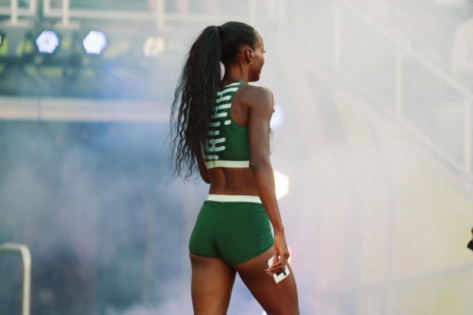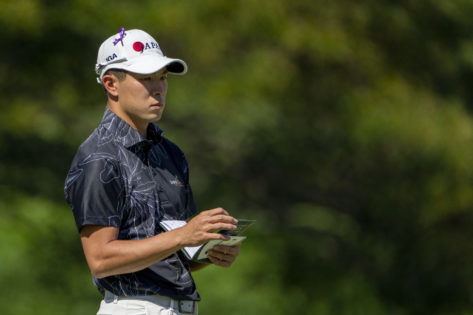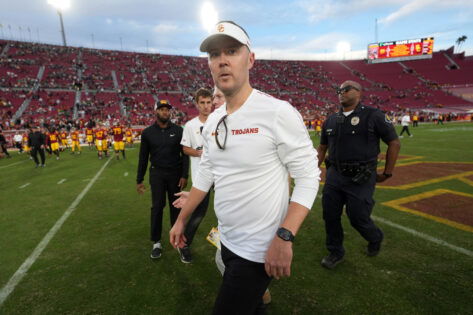Two moments. Two Eugene trials. Two vastly different outcomes. In 2012, a track and field athlete’s Olympic dream seemed to end before it ever truly began. She clocked a modest 58.46 seconds in the 400m hurdles at the U.S. Olympic Trials—finishing sixth in her heat and well out of contention. Just like that, her shot at London was gone. She wasn’t just heartbroken—she was ready to walk away for good. “It was really disappointing,” she recalled. “I felt I could have made the Olympic team with the right tools around me.” But the disappointment ran deeper than just a bad race. Was this her giving up?
According to Dalilah Muhammad, the pressure had been mounting for years. On Paddy Steinfort’s podcast this week, she opened up about what was really going on behind the scenes. College, for her, had become a mental maze. Somewhere along the way, she stopped believing she belonged. She felt like she wasn’t performing up to her potential. Doubts crept in. Faith in herself faded. What came out of the blue was her revelation that by the time she had reached Eugene in 2012, she had already made peace with the idea of leaving the sport behind.
“My first, my last race in college for me to look at things from a different angle, a different perspective. I think when I got to college, I got stuck in this mindset that I no longer wanted it, that I wasn’t performing to the ability that I wanted for myself. I convinced myself that I no longer wanted to run. I no longer cared about track and field. God must have another plan for me because this is just not working out. It wasn’t until my last race in college,” Dalilah Muhammad said in the podcast. The Eugene Trials were supposed to be her final race. Her goodbye. But fate had other plans. So, what changed?
That night, a simple phone call with a close friend changed everything. Dalilah poured out all her frustration—and her friend, slightly confused but deeply honest, asked one question that hit her hard. Dalilah explained: “To me, it was literally like, what happened to the last four years of your life? That’s how I took it. I’m expressing my frustration with her on the phone. She was just a little bit puzzled, but also, I guess it changed my idea.” It stopped her in her tracks. That sadness she felt wasn’t about failure—it was about unfinished business.
“It made me realize how much I wanted this and how much fear had become a factor. It made me feel undone. There was something left in the tank, and I had to go forward. I had to address those feelings and just give myself another chance,” Dalilah conceded. So she gave herself one more chance. What happened next is nothing short of remarkable.
In 2013, she shocked the world with a silver medal at the World Championships in Moscow, just a year after being ranked world number 57. By 2016, she returned to Eugene—this time as a different athlete. She obliterated the field, winning the U.S. Trials with a blistering 52.88 seconds—a jaw-dropping 5.58 seconds faster than her 2012 performance.
And then came Rio. The Olympics. The dream that she almost gave up on. Dalilah didn’t just make the final. She won it all. Olympic gold. From the edge of retirement to the top of the podium in just four years. Now, in 2025, at 35 years old, the track and field athlete is still competing, still winning, still inspiring the next generation.
The last track and field season in the phenomenal career
After more than a decade of dominance, Dalilah Muhammad—the quiet storm of the 400m hurdles—is preparing to take her final bow. One of the most decorated hurdlers in history, Dalilah announced before the Jamaican stop of the Grand Slam Track series that this season would be her last. But true to form, she isn’t fading into the background.
The track and field legend is making her farewell season just as unforgettable as the years that made her a legend. Other than one appearance in the 60m hurdles at the Razorback Invitational, Dalilah has finished on the podium in every race this season—proving that she’s leaving the sport still sharp, still elite, and still impossible to ignore. And the love she’s receiving? It’s coming from everywhere—especially from those who once chased her, now standing beside her.
At the press conference ahead of the Jamaican Grand Slam Track meet, Olympic champion Sydney McLaughlin-Levrone took a moment to say what so many in the sport have felt for years. “Dalilah, you truly did just change the game for all of us.”, Sydney said, her voice trembling with emotion. “Seeing you break that world record after so long of it being there just inspired all of us.” Those words weren’t scripted. They weren’t for the headlines. They were heart speaking to heart—from one great to another. A moment of reverence in the middle of competition. A passing of the torch, not in defeat, but in admiration.
Dalilah Muhammad’s story has always been one of quiet resolve, stunning comebacks, and unshakeable strength. She broke records. She broke barriers. And perhaps most memorably, she broke the idea that setbacks define you. She is, and will always be, the comeback queen. And now, as she races toward the final chapters of her career, she’s writing them the same way she’s written every one before—with fire, focus, and the fierce dignity of a true champion.
The post Failing to Handle Pressure, Track and Field Legend Nearly Quit the Sport Long Before Her Breakthrough appeared first on EssentiallySports.



